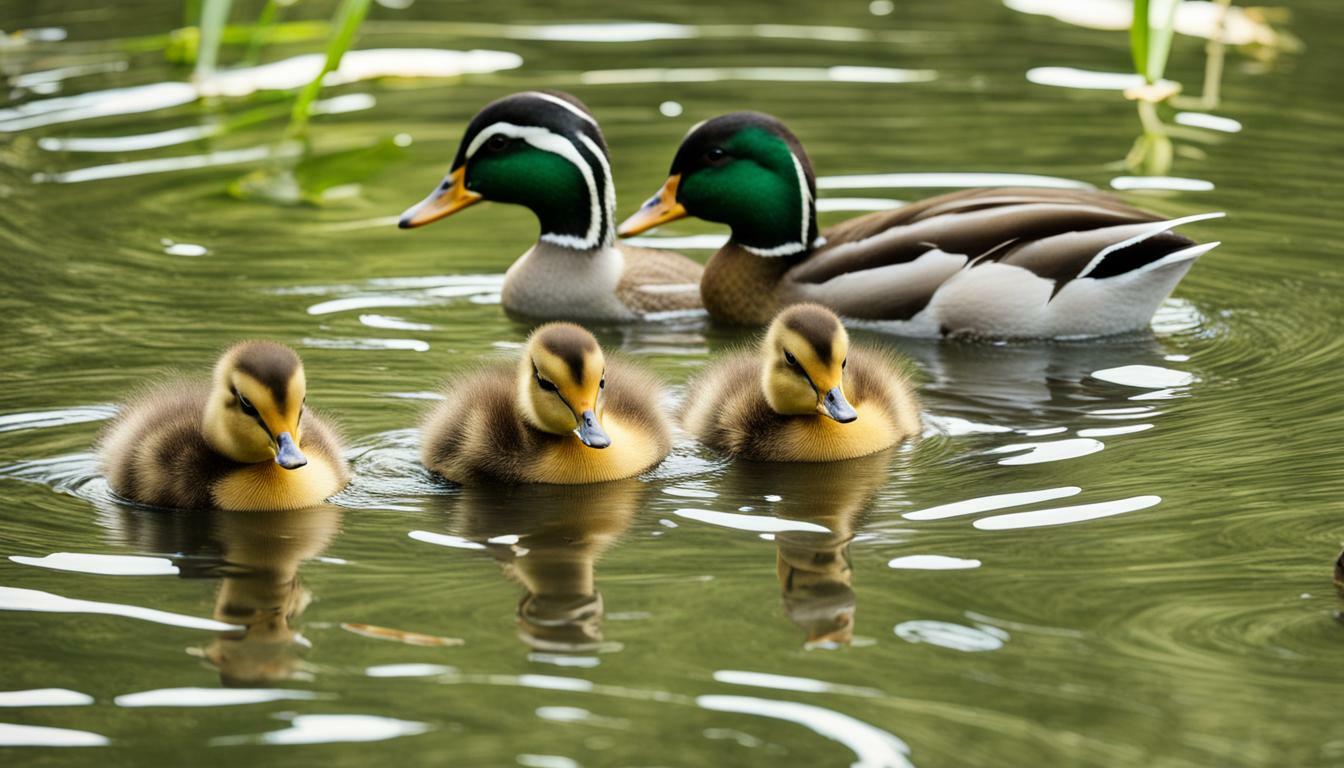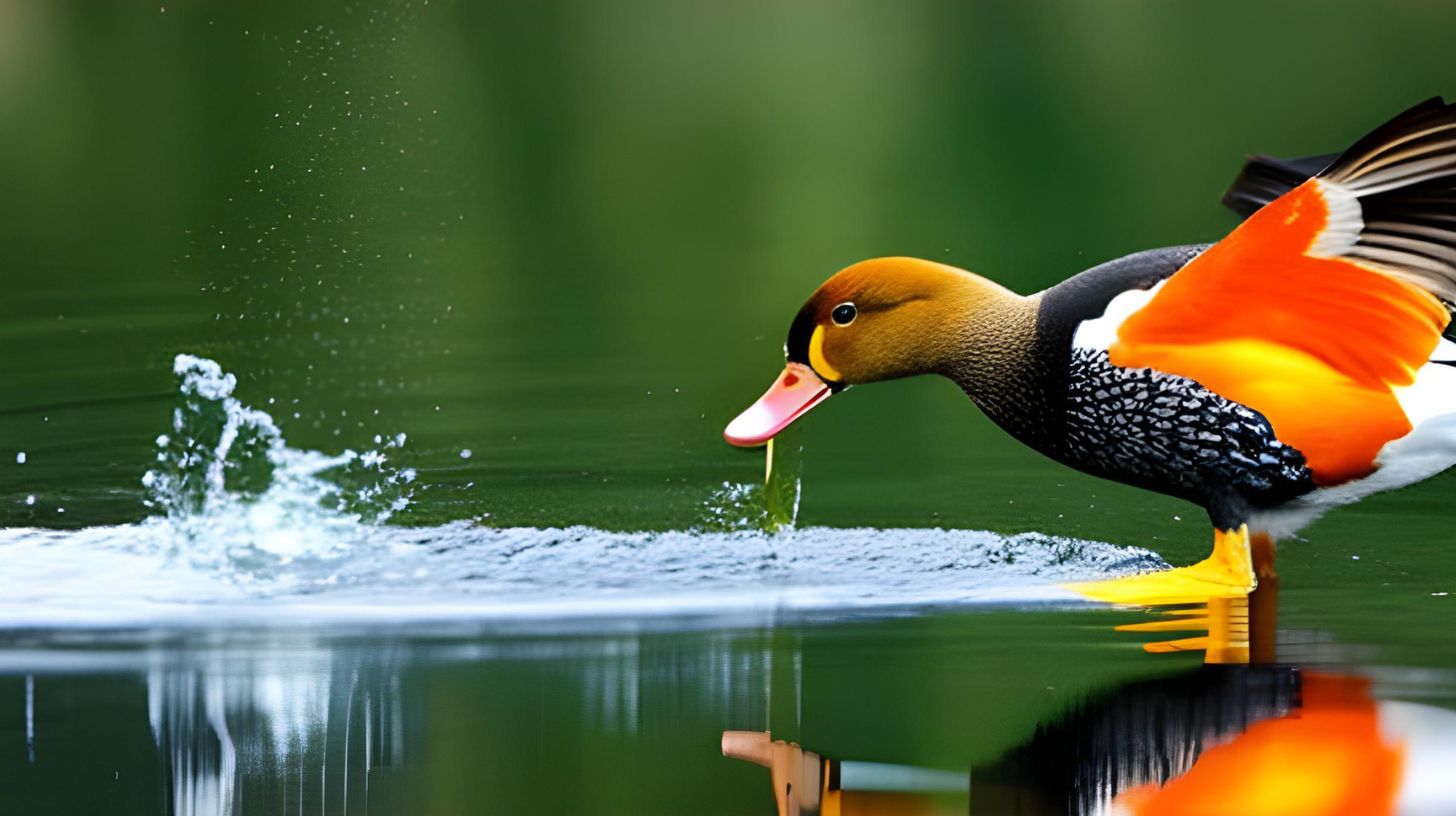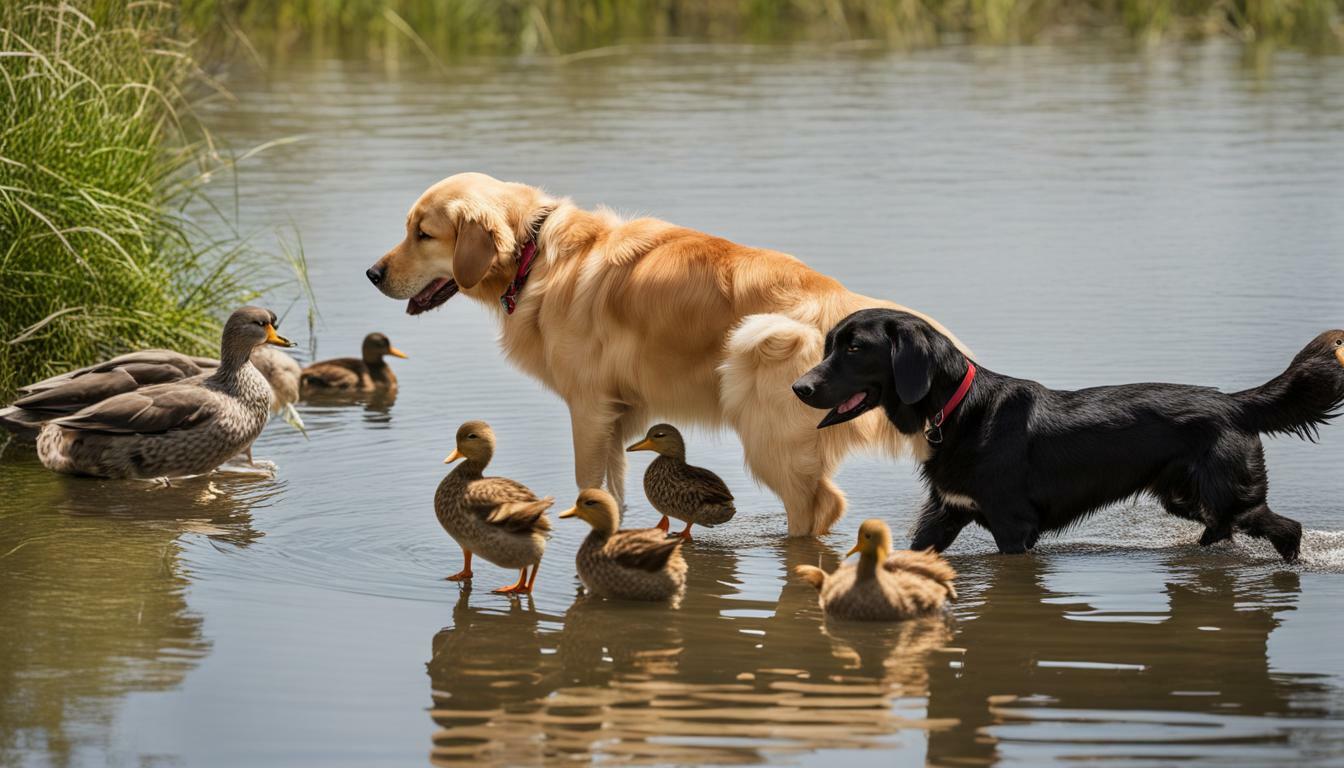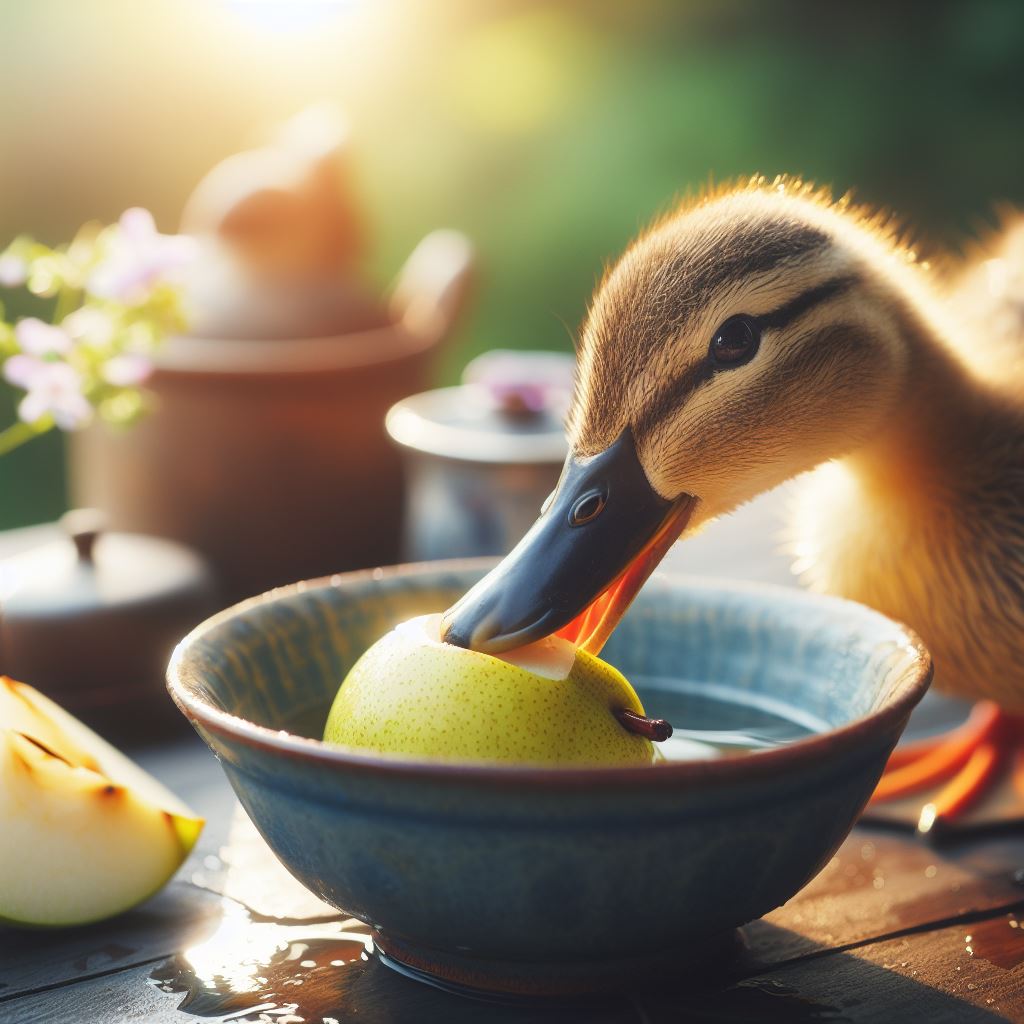Can Baby Ducks Drown? The Friendly Guide to Duckling Safety

Table of content:
Ducklings are adorable little fuzzballs, paddling after their mama in ponds and rivers. Their tiny size and still-growing feathers make you want to scoop them up and protect them. But can baby ducks drown if they get wet too early? Do they need to be taught how to swim?
As cute as they are, ducklings have an amazing natural ability to take to the water almost immediately after hatching. Their fluffy down feathers trap air close to their bodies, making them buoyant. And they have an instinct to paddle and tip their tails up like a boat rudder.
Still, ducklings face real threats in the water in their first few weeks. Knowing their limitations and taking some basic precautions will help keep your new ducklings safe.
Can Ducklings Drown if They Get Wet Too Early?
Baby domestic ducks can get wet immediately after hatching without any harm. Their downy coat repels water and keeps them afloat. You may see them get submerged briefly while still inside their eggshells as they pip out.
Once dry and fluffy again, ducklings have no trouble going for their first swim. Although they can’t dive or stay underwater yet, floating comes naturally.
However, there are some important factors to keep in mind:
- Age – Ducklings tire more easily the younger they are. Limit their first swims to a few minutes, and provide ramps or towels so they can get out easily.
- Temperature – If ducklings get chilled, they can weaken and have trouble swimming and lifting their heads above water. Keep water warm (at least 70°F/21°C) for the first 3-4 weeks.
- Unsupervised access – Don’t let ducklings wander into ponds, pools or other bodies of water unsupervised until they have grown swimming feathers around 4-5 weeks old. They don’t have full diving reflex or stamina yet.
So while healthy ducklings won’t drown simply from getting wet, other hazards exist for young waterfowl. With some common-sense management in their first month of life, you can let ducklings paddle safely.
How Long Can Ducklings Stay Underwater?
Newly hatched ducklings can’t stay underwater for more than a few seconds. They have an instinct to tilt their tails up and paddle to the surface.
But they tire quickly and don’t have mature waterproofing on their growing feathers. Without full buoyancy or stamina, ducklings that get submerged may not make it back up in time.
As they grow, ducklings gradually gain improved diving and swimming skills:
- 1 week old – Can stay under for 5-10 seconds only
- 2 weeks old – Can manage 15-30 seconds
- 3 weeks old – Can start diving under briefly to forage and escape predators
- 4 weeks old – Can stay submerged for up to a minute
- 6-8 weeks old – Able to dive and swim fully like adult ducks
Even after ducklings have started diving, they still need to rest on land frequently when swimming. Watch them closely and limit their access to deep or fast-moving water until at least 2 months old.
What Age Can Ducklings Swim?
Ducklings have an amazing ability to paddle right after hatching. But their swimming skills are limited at first.
Here’s a timeline for when ducklings reach key milestones in learning to swim:
Hatching Day
Ducklings can float and propel themselves short distances almost immediately after hatching. But they tire quickly and can’t stay underwater.
First Week
Ducklings are swimming more strongly now in short bursts. But they still need very frequent rest periods and can’t dive or submerge their heads.
2 Weeks Old
By two weeks, ducklings are more confident swimmers. They can paddle longer distances and are starting to coordinate diving under briefly with mom and siblings.
3-4 Weeks Old
At three weeks, ducklings are practising diving more. By four weeks, they can stay underwater for up to 30 seconds at a time to forage and avoid predators. Their juvenile feathers are coming in, providing increased waterproofing. But ducklings are still easily tired.
6-8 Weeks Old
Now fledged into full juvenile plumage, ducklings can swim, dive, and forage just like adult ducks. Their muscles, oxygen capacity and waterproofing have fully developed.
So while ducklings take instinctively to the water in their first day of life, it takes about 2 months for them to build all their swimming skills to maturity. Careful supervision is needed up until this point.
Do Ducklings Need to Be Taught to Swim?
Ducklings don’t need any instruction or training to learn how to swim or paddle. The ability comes totally naturally, guided by instinct.
Like many precocial species, ducklings are born ready to move around right after hatching. Their mother may call and encourage them into the water initially. But no actual teaching or demonstration is needed.
Interestingly, orphaned ducklings raised without parents also take to swimming without hesitation. Almost as soon as their down dries after hatching, they start paddling instinctively if placed in water.
However, a mother duck and siblings do provide some important guidance:
- Following – Ducklings will follow family members in and out of the water, learning safe routes.
- Shelter seeking – Ducklings learn to swim to mom for warmth or to avoid danger.
- Foraging hints – Mom shows ducklings how to upend and dive to find food underwater.
So while parental guidance isn’t required for swimming itself, it does help ducklings stay safe and develop skills as they grow.
Are Ducklings Born with Waterproof Feathers?
Ducklings hatch out fully covered in fluffy down, which provides insulation and some water resistance. But their primary feathers for waterproofing emerge over several weeks.
Here’s the timeline for a duckling’s feather development:
- Hatching day – Covered in downy chick plumage. Slightly water-repellent but not fully impervious to water. Can float but loses body heat when wet.
- 1-2 weeks old – Juvenile body feathers start growing in. Provide some increased water resistance but still not fully waterproofed.
- 3-4 weeks old – Contour feathers emerge on wings, chest and sides. Ducklings can swim more strongly but tire easily.
- 5-6 weeks old – Juvenile plumage complete, with tail and wing feathers grown. Nearly waterproof now, but down underplumage still allows some water contact.
- 8 weeks old – Ducklings fledged into full juvenile plumage. Down has been replaced by insulating feathers. Young ducks are now fully waterproof.
So while ducklings aren’t born waterproof like adult ducks, their down provides temporary protection at hatching. Within two months, their mature feathers develop for buoyancy, temperature regulation, and water resistance like adult ducks.
Can Young Ducklings Drown in Ponds?
Shallow, calm ponds can provide safe swimming areas for ducklings under supervision. But ponds do pose a drowning risk, especially for young ducklings.
Here are some key risks to watch out for:
- Age – Ducklings under 3 weeks have limited stamina and diving reflex if they get submerged.
- Predators – Snakes, turtles, fish, or birds of prey may attack ducklings in exposed ponds.
- Water quality – Poor circulation or grown-over ponds make swimming difficult. Toxins can also sicken ducklings.
- Weather – Cold temperatures or stormy weather can weaken ducklings and make swimming harder.
- No exit – Steep banks without slopes or ramps prevent ducklings from getting out easily.
- Getting separated – Ducklings that stray from mom and siblings can become exhausted trying to stay afloat.
With supervision and some safeguards like ramps for easy exits, small ponds can be a good place for ducklings to practice swimming. But uncontrolled risks in ponds can lead to drowning.
Shallow child pools or indoor brooder tubs are safer alternatives for very young (under 3-4 weeks) ducklings first learning to swim.
What Happens if Ducklings Inhale Water?
Ducklings have small nostrils and a protective larynx flap to prevent inhaling water into their lungs under normal circumstances.
But if submerged for too long or unable to reach the surface, ducklings can end up sucking water into their airways. This can cause:
- Choking – Inhaled water obstructs their trachea and prevents breathing.
- Aspiration pneumonia – Water in the lungs allows bacteria to proliferate, causing respiratory illness.
- Oxygen deprivation – Lack of air intake leads to organ damage and eventually death by drowning.
Young ducklings are the most vulnerable, but ducks of any age can drown if they become trapped underwater and inhale a lethal amount of liquid.
If a duckling starts choking after accidental water inhalation, hold it firmly upside down and gently pat its back to encourage coughing up the water. Seek veterinary care if breathing distress continues or pneumonia develops later.
Prevention by limiting young ducklings’ exposure to deep water is crucial. Their natural buoyancy helps protect them, but they are still susceptible to drowning if unable to surface for air. With safe management, ducklings can thrive and enjoy swimming, a pleasure hardwired into their DNA.
Final Thoughts
Ducklings have an amazing, instinctive ability to take to the water right after hatching. But they also face real risks like chilling, exhaustion, and drowning if allowed to swim unsupervised.
By understanding duckling limitations, providing a safe controlled environment, and not overexposing them to deep water, you can allow ducklings to paddle while avoiding danger.
Within just a few weeks, they transition to become agile, fully aquatic juveniles ready for the adventures of dabbling on ponds and wetlands. With their irresistible charm and zest for swimming, ducklings are a delight to watch as they grow into their roles as the iconic waterfowl we know and love.
Welcome. I’m Adreena Shanum, the proud owner of this website, and I am incredibly passionate about animals, especially poultry. I founded adreenapets.com as a labor of love, stemming from my desire to share my knowledge and experiences with poultry enthusiasts worldwide.




